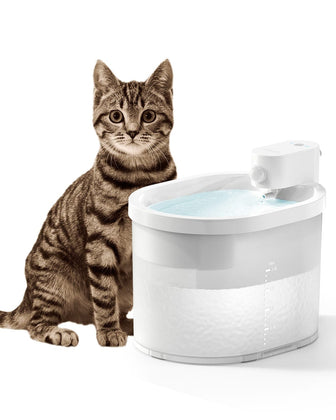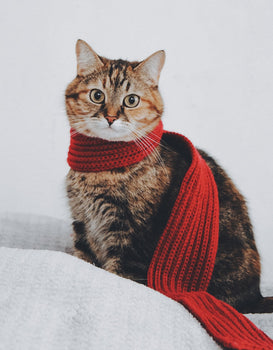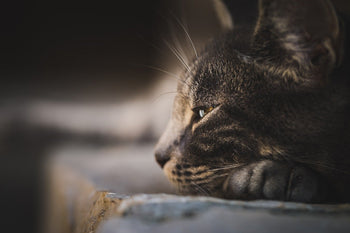Swollen Cat Lip: Causes, Treatment, and Prevention
Swollen cat lip is a common condition that can be caused by a variety of factors. It is characterized by the swelling of the upper or lower lip, which can be accompanied by redness, pain, and discomfort. While the condition is generally not life-threatening, it can be a cause for concern for pet owners who are unsure of its underlying cause.
Causes of swollen cat lip can range from minor irritations to serious infections. Allergies, injuries, and insect bites are some of the most common causes of the condition. In some cases, swollen cat lip can also be a symptom of a more serious underlying health condition, such as dental problems or cancer. Identifying the cause of the swelling is important in determining the appropriate treatment plan for the cat.
Key Takeaways
Swollen cat lip can be caused by a variety of factors, including allergies, injuries, and infections.
Identifying the underlying cause of the condition is important in determining the appropriate treatment plan.
Treatment options for swollen cat lip can range from topical ointments to surgery, depending on the severity of the swelling and its underlying cause.
Causes of Swollen Cat Lip
Common Causes
Underlying Health Conditions
Swollen cat lips can also be a symptom of an underlying health condition. Some of the most common conditions that can cause a cat's lip to swell include dental problems, such as an abscess or infection, and autoimmune diseases, such as lupus or pemphigus.
Identifying the Cause
To determine the cause of a cat's swollen lip, it is important to observe any other symptoms that may be present. If the cat is experiencing other symptoms, such as lethargy, loss of appetite, or difficulty breathing, it may be a sign of a more serious underlying condition. A veterinarian can perform a physical exam and run diagnostic tests to determine the cause of the swelling and recommend appropriate treatment.
Overall, swollen cat lips can be caused by a variety of factors, and it is important to identify the underlying cause in order to provide proper treatment.

Symptoms and Diagnosis
Typical Symptoms
Swollen cat lip is a common condition that can occur due to various reasons. Some of the typical symptoms of a swollen cat lip include redness, inflammation, and tenderness. The cat may also experience pain and discomfort while eating or grooming. In some cases, the swelling may be accompanied by discharge or bleeding.
Diagnostic Methods
To diagnose the cause of a swollen cat lip, a veterinarian may perform a physical examination of the cat's mouth and lips. The vet may also take a sample of the discharge or tissue to determine the underlying cause of the swelling. Blood tests and imaging tests such as X-rays or ultrasounds may also be used to identify any underlying health issues that may be contributing to the swollen lip.
Professional Help
If a cat owner notices that their cat's lip is swollen, it is important to seek professional help from a veterinarian. A vet can diagnose the underlying cause of the swelling and provide appropriate treatment. Depending on the cause of the swelling, treatment may include antibiotics, anti-inflammatory medication, or surgery. It is important to follow the vet's instructions carefully and monitor the cat's condition closely to ensure a full recovery.
Treatment and Management
Treatment Options
The treatment for a swollen cat lip depends on the underlying cause. If the swelling is caused by an allergic reaction, antihistamines or corticosteroids may be prescribed by a veterinarian to reduce inflammation and swelling. In some cases, an injection of epinephrine may be necessary to treat a severe allergic reaction.
If the swelling is due to an infection, antibiotics may be prescribed to treat the underlying infection. In some cases, draining of the abscess may be necessary to reduce the swelling and promote healing.
Veterinarian's Instructions
It is important to follow the veterinarian's instructions carefully when treating a swollen cat lip. The dosage and frequency of medication should be strictly adhered to, and any signs of adverse reactions should be reported to the veterinarian immediately.
In addition, it is important to keep the affected area clean and dry to prevent further infection. The veterinarian may recommend using a topical ointment or cream to promote healing and reduce inflammation.
Home Management
If the swelling is mild and not accompanied by other symptoms, home management may be appropriate. Applying a warm compress to the affected area can help reduce swelling and promote healing. In addition, keeping the cat's food and water bowls clean and free of bacteria can help prevent further infection.
It is important to monitor the cat's condition closely and seek veterinary care if the swelling worsens or is accompanied by other symptoms such as fever, lethargy, or loss of appetite. With proper treatment and management, a swollen cat lip can be effectively treated and managed.
Conclusion
In conclusion, a swollen cat lip can be caused by a variety of factors, including allergies, infections, injuries, or dental problems. It is important to take your cat to the veterinarian for a proper diagnosis and treatment plan.
Preventative measures such as regular dental check-ups and avoiding potential allergens can also help reduce the risk of swollen cat lips. Additionally, providing your cat with a healthy diet and plenty of water can promote overall health and prevent dental issues.
Overall, it is important to monitor your cat's health and behavior closely and seek veterinary care if you notice any concerning symptoms. By staying informed and proactive, you can help ensure your cat's well-being and prevent potential health problems.
Frequently Asked Questions
What home remedies can help reduce swelling in a cat's lip?
There are a few home remedies that may help reduce swelling in a cat's lip. Applying a cold compress to the affected area for a few minutes at a time can help reduce inflammation. You can also try applying a small amount of honey or aloe vera gel to the swollen area to help soothe the skin. However, it is important to note that these remedies may not be effective for all cats and that it is best to consult with a veterinarian before trying any home remedies.
How should a swollen lip in cats be medically treated?
If a cat's lip is swollen, it is important to take them to a veterinarian for proper diagnosis and treatment. Depending on the cause of the swelling, the veterinarian may prescribe medication, such as antibiotics or steroids, to help reduce inflammation and promote healing. In some cases, the veterinarian may also recommend surgery to remove any growths or tumors that may be causing the swelling.
What could cause a cat's lip to swell on one side?
A cat's lip can swell on one side for a variety of reasons. Some common causes include insect bites or stings, dental problems, infections, allergies, and trauma. It is important to take your cat to a veterinarian for proper diagnosis and treatment, as untreated swelling can lead to more serious health problems.
Is a flea allergy a common reason for a cat's lip to become swollen?
Flea allergy dermatitis is a common condition in cats that can cause swelling, redness, and itching around the face and neck. While a swollen lip may be a symptom of flea allergy dermatitis, it is important to note that there are many other potential causes of swelling in cats. A veterinarian can help determine the underlying cause of your cat's swelling and recommend appropriate treatment.
What are the signs and treatments for rodent ulcers in cats?
Rodent ulcers, also known as eosinophilic granulomas, are a type of skin lesion that can occur in cats. Symptoms of rodent ulcers include swelling, redness, and ulceration of the skin. Treatment may involve medication, such as steroids or antibiotics, to help reduce inflammation and promote healing. In some cases, surgery may be necessary to remove the affected tissue.
Can allergies lead to swelling in a cat's lips?
Yes, allergies can cause swelling in a cat's lips. Common allergens include certain foods, pollen, and flea bites. If your cat is experiencing swelling in their lips, it is important to take them to a veterinarian for proper diagnosis and treatment. The veterinarian may recommend allergy testing to help determine the underlying cause of the swelling and recommend appropriate treatment.

















